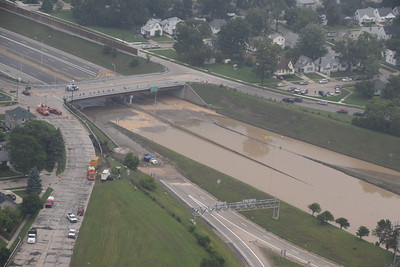Community college enrollment has suffered during the pandemic. Although this came as a surprise to community college administrators, it should not have. In the past two decades, community colleges have focused (unfortunately) on two-year transfer programs at the expense of vocational and occupational education programs.
And the unfortunate result of this strategy is that vocational and occupational students have turned (in large numbers) to private, for-profit schools. When students feel like private, for-profit education is a better option than their local community college, that can only be assessed as an utter failure on the part of the community college administration.
Vocational and occupational education have fallen out of vogue in part because of their cost. It costs a lot to build labs, buy specialized equipment and find the right teachers for skill-based programs. Without doubt, it is less expensive to produce an English class than it is to produce a welding class. But the world is desperately short of people who can fill skilled jobs.
Vocational and occupational education programs have also suffered because community college administrators neither understand nor appreciate them. It’s much easier to see them as expensive, space-hogging programs with weird equipment that attract fewer students. For administrators who have never ventured out of theoretical classrooms, it makes “business sense” to focus on two-year transfer programs.
In doing so, these community college administrators deprive the community of some of the most needed skills and innovations. Worse, the mood among students has changed. The majority of high school graduates don’t want to attend four-year schools. And because the WCC administration has been asleep at the wheel on vocational and occupational education, WCC has little to offer in terms of relevant community college majors that enable economic mobility.
Reprioritizing meaningful community college majors
Among the 25 highest-paying community college majors are in energy and environmental sciences ( geological and hydrologic technicians, environmental engineering technologists and technicians, clean/renewable energy technicians and nuclear technicians.) All of these community college majors have median salaries above $50,000 per year. Washtenaw Community College offers none of these programs.
That’s especially short-sighted, since every state will need to generate its own renewable energy. Having trained, skilled workers makes the transition to clean energy systems both easier and faster. Not having these workers produces the opposite.
Civil engineering technicians are also in great demand. They’ll be even more so thanks to the infrastructure funding from Washington. Approximately 11% of the bridges in Michigan are classified as structurally deficient. “Structurally deficient” is code for “This one’s coming down.”) In 2018, the American Society of Civil Engineers assigned Michigan’s infrastructure a grade of D+. ASCE includes “roads, bridges, schools, water and sewer systems, dams, railways, and energy systems” in its definition of infrastructure.
According to ASCE, Michigan’s infrastructure suffered from underinvestment in maintenance and repairs. (WCC has become very good at underinvesting in maintenance and repairs.) Like the State itself, WCC has not invested in the community college majors this region needs to recover. And like infrastructure neglect itself, there is no valid excuse for it.
We need an administration that values and prioritizes the development of community college majors that support economic growth and vitality. We don’t have that right now. Instead, we have an administration that values “partnerships” with employers who want to pay workers $12 per hour.
This community invests a lot into Washtenaw Community College. We deserve more than a bloated administration stuck hard on two-year transfer programs.
Photo Credit: Michigan State Police Emergency Management and Homeland Security




















